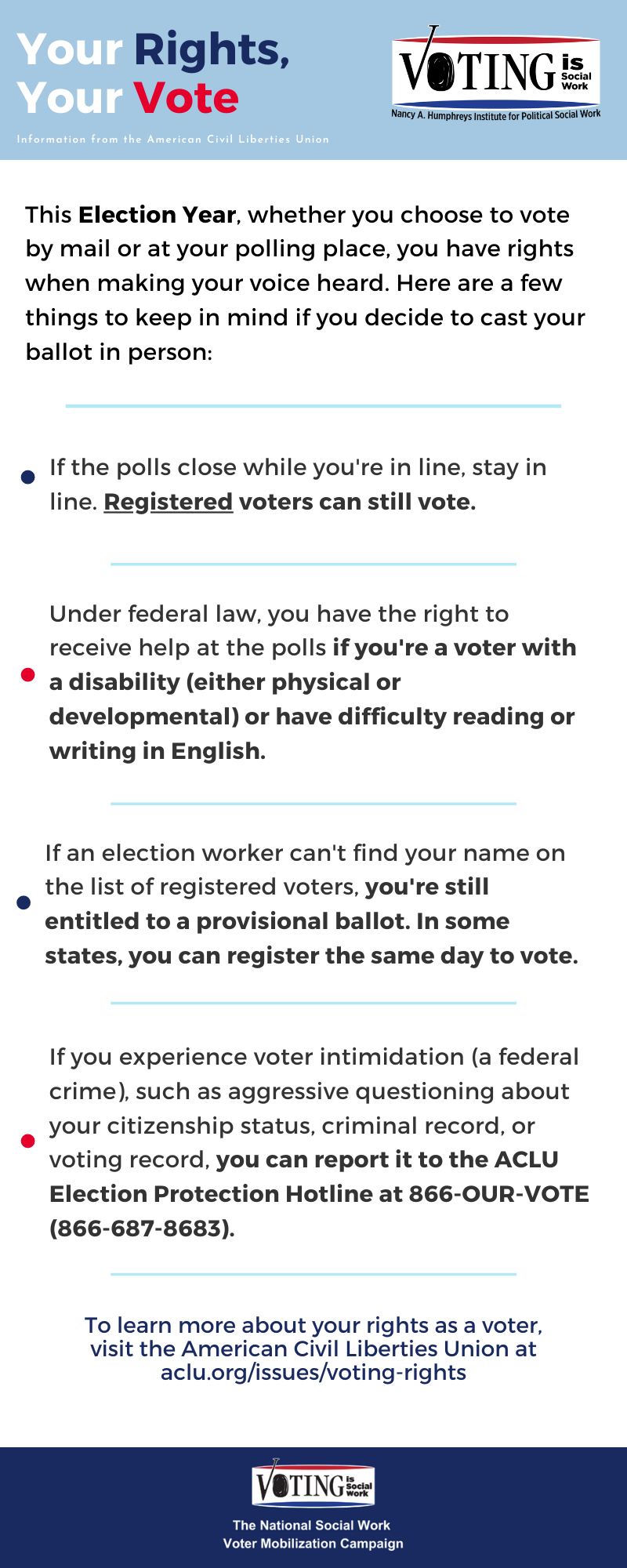Any number of issues could come up when you go to cast your ballot. Knowing your rights and the rights of others is critical to ensuring your right to vote.
Voter Intimidation and Voter Suppression are attempts to prevent eligible people from voting or forcing them to vote a certain way. These attempts may be made by an official, individual, or group. Some voter intimidation tactics include: using verbal or physical threats; threatening with weapons or jail time; tests involving literacy, property ownership, or citizenship; and poll taxes.
- If you are registered to vote and are in line at the time the polls close, you have the right to vote (no matter how late it gets).
- If you do not have a photo identification, you may be able to vote without an ID. You may need to bring a piece of mail to confirm your identity. To learn about voter ID laws in your state, click here.
- Individuals who do not speak English as their primary language have the right to cast their vote in their native language if they live in qualifying jurisdictions defined by Section 203 of the Voting Rights Act. Click here to learn more.
- People with a former incarceration or felony conviction may still be able to vote. Check out the "Restore Your Vote" website to find out the regulations in your area. To learn more about felony disenfranchisement laws check out the American Civil Liberties Union website.
What do you do if you see armed individuals near the polling site or at a voter registration drive?
Georgetown Law has created fact sheets for all 50 states explaining the laws barring unauthorized private militia groups and what to do if groups of armed individuals are near a polling place or voter registration drive. Click here to find your state.
Voting Rights for Individuals with Physical or Developmental Disabilities
Several federal laws protect the voting rights of Americans with disabilities. These include the Americans with Disabilities Act (ADA) and the Help America Vote Act (HAVA).
If you or someone you know will need accommodations on Election Day, contact the state or local election office to find out what to expect at your polling place.
Voters with disabilities have the right to:
- Vote in private, without help;
- Have an accessible polling place with voting machines for voters with disabilities;
- Seek help from poll workers trained to use an accessible voting machine, or;
- Bring someone to help with voting (including if someone is unable to read or write).
Some states offer “curbside voting," which is when a poll worker brings everything you need to vote to the vehicle.
Polling places must have:
- Wheelchair-accessible voting booths
- Entrances and doorways at least 32 inches wide
- Handrails on all stairs
- Voting equipment for people who are blind or visually impaired
You can also ask your election office what other options are available.
To report an issue, you call the American Civil Liberties Election Protection Hotline at 1-866-OUR-VOTE (1-866-687-8683).
